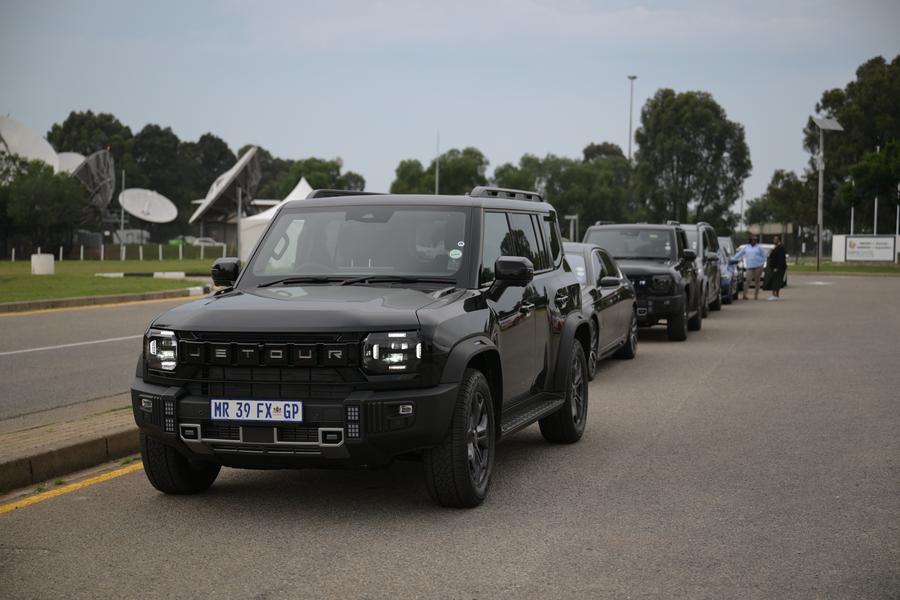Chinese Vehicles Roll in For Johannesburg G20 Summit

JOHANNESBURG, Xinhua: As the Group of 20 (G20) Leaders’ Summit made its debut on the African continent in Johannesburg, South Africa’s economic hub, on Saturday, Chinese vehicles were seen shuttling between the airport, hotels and summit venues, adding a distinctive Chinese touch to the event.
Chinese automakers delivered hundreds of vehicles to form part of the summit’s shuttle fleet, with Jetour contributing 70 units, the largest share among the Chinese brands.
The vehicle sponsorship was finalized early in February with South Africa’s Department of International Relations and Cooperation.
Jetour International’s President Ke Chuandeng recalled that the department sealed the deal quickly after reviewing their T2 SUV, a model that had not yet entered the market at the time. “It speaks to South Africa’s confidence in Chinese auto brands and in what our products can deliver,” Ke said.
Chinese cars have become an increasingly familiar sight on South Africa’s roads in recent years, with brands such as Jetour gaining popularity among urban buyers, especially younger consumers.
“Chinese automakers are gaining strong traction in South Africa by combining high-tech features, modern styling and competitive pricing in a way traditional brands struggle to match,” said Charmaine Spangenberg, a young South African consumer.
As an economic powerhouse on the African continent, South Africa is known as a country “built on wheels” for its well-established automotive industry. Since Chinese automakers entered the market more than a decade ago, a dozen Chinese brands have gained a foothold and posted solid sales.
According to the National Association of Automobile Manufacturers of South Africa, the country’s automotive market continued to expand in 2024, with new-vehicle sales reaching 515,800 units, a 5.6 percent increase from 2023. Meanwhile, Chinese brands continued to show strong momentum, accounting for 12.8 percent of total market sales.
Marly Vivier, a young South African who previously owned a Chinese car, said she has always found Chinese models stylish and reliable. She has noticed that Chinese brands are gaining ground on long-established brands. “I really think they are going to take over, and I love that,” she said.
As part of the official escort fleet at the G20 Leaders’ Summit, Jetour deployed the T2 SUV, a model that combines comfort and safety and is well-suited to the demands of high-level diplomatic events.
Launched in South Africa in October, the T2 comes with L2 driving-assistance features and a 360-degree panoramic camera system, giving drivers a comprehensive view for easy maneuvering. Its spacious and quiet cabin, equipped with ergonomic seating and an infotainment system, provides a comfortable, composed ride for dignitaries.
The presence of Chinese automobiles in the G20 fleet signals a shift in the international perception of China’s carmakers, who are no longer seen just as market players but as reliable partners capable of supporting major global events.
“I think the G20 summit provides a favourable wind for China-South Africa relations. For Chinese automakers, the path to greater brand influence lies in complementing their successful sales strategies with deeper, more visible local investment and community integration,” said Spangenberg.
Ke said Jetour is proud to be part of the Chinese automakers providing vehicles for the G20 summit. “We hope this collaboration gives the world a clearer sense of our capability and confidence, and shows our ambition to keep raising the bar as we expand globally.”